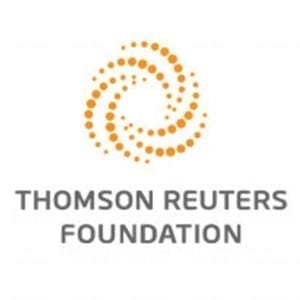Jennifer Pahlka believes that coding can help deliver a better U.S. government that works to help reformed felons earn an honest living and public servants frustrated by poor technology.
After seeing the challenges working in child welfare, she founded San Francisco-based non profit Code for America in 2009 to create user-friendly websites that make it easier to navigate systems to access state benefits or services.
If you like this, subscribe here for more stories that Inspire The Future.
“People need help for a very wide range of reasons and they’ve hit a rough spot and they just need a little bit of help,” she told the Thomson Reuters Foundation at the Skoll World Forum, an annual gathering of 1,200 social entrepreneurs.
“We need to help these people in a much less burdensome, and frankly, less insulting way. We can give them that help in a way that is dignified and respects their time.”
Pahlka was in Oxford – where Ebay billionaire Jeff Skoll established a centre for social entrepreneurship in 2003 – to collect an award, one of six Skoll winners this year.
The Skoll Centre at Oxford University aims to increase the impact of social entrepreneurs by helping them to set up new ventures, training leaders and carrying out research, from health to climate change to education.
Britain is seen as a global leader in the growing social enterprise sector, home to about 70,000 businesses set up to address social and environmental issues that employ nearly 1 million people, according to industry body Social Enterprise UK.
Pahlka said her organisation is unusual. “Most social enterprises work around government,” she said. “They are essentially trying to supplement where government is failing. We take the approach of strengthening government itself to get these social outcomes.”
Code for America’s websites reduce the time-consuming bureaucracy of form filling that might deter applicants to about 10 minutes, she said, and they are designed for smartphone users to cater to the millions who do not have a computer at home.
One innovation is Clear My Record, which allows users to get rid of criminal offences on their data record that might prevent them accessing employment, benefits or credit.
Pahlka was inspired by the election of U.S. President Barack Obama, whose online campaign mobilised masses of young voters as well as donations.
“The thinking was, if the Internet can help get a president elected, can it help him govern better?” Pahlka asked. “The application of modern tech and modern approaches to problem solving can’t be limited to politics. It has to help us do a better job, using tax dollars to get the outcomes that we intend.”
Pahlka went on to work for Obama as his deputy chief technology officer in 2013 and helped found the United States Digital Service, which helps federal agencies improve their websites and simplify digital services.
“Public servants who help people get food assistance or take care of a kid who needs to be in a foster home – those people need tools to do their jobs,” she said. “We weren’t – and still in many case aren’t – helping those people do those jobs.”
Code for America aims to help more than 500,000 people in need with more effective government services in more than 70 cities, states and counties in 2018.
By Lee Mannion; Editing by Katy Migiro.
If you like this, subscribe here for more stories that Inspire The Future.




































